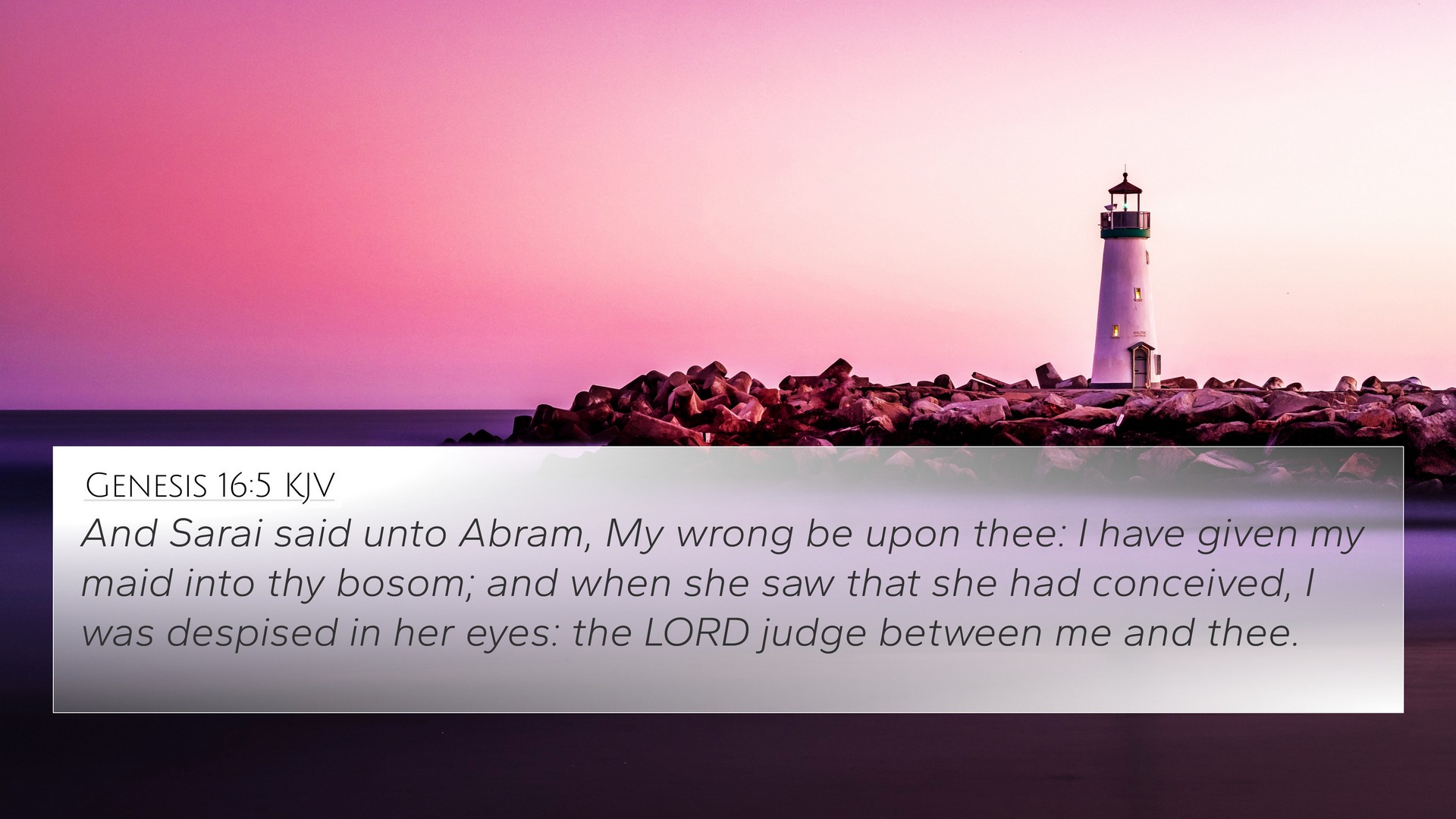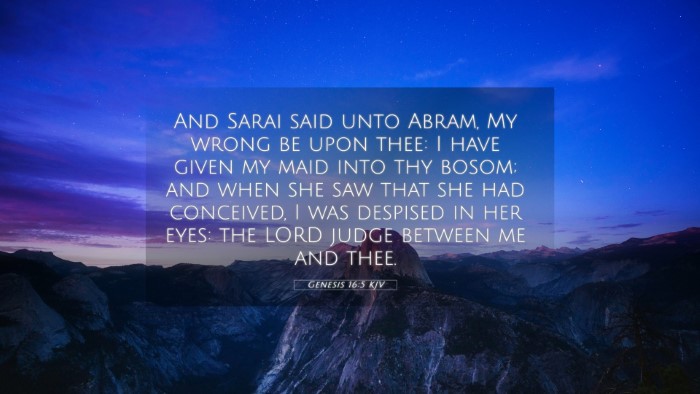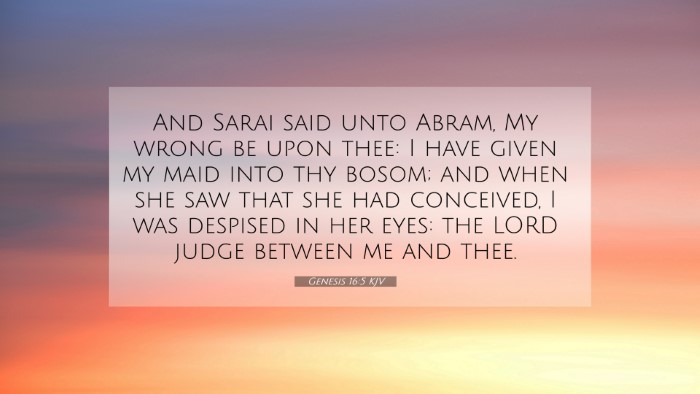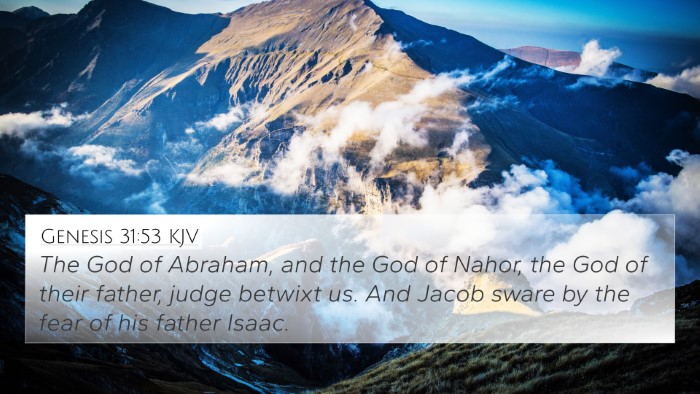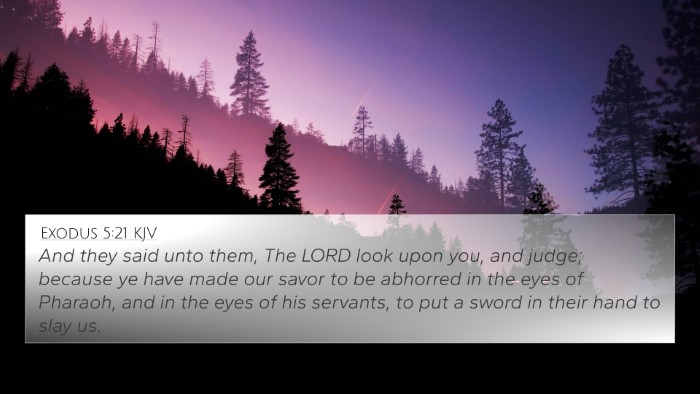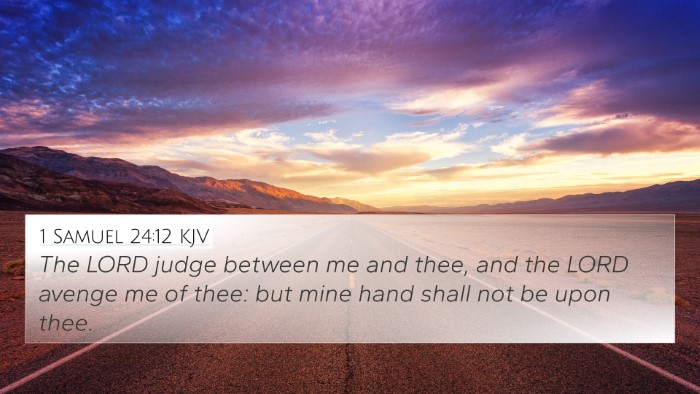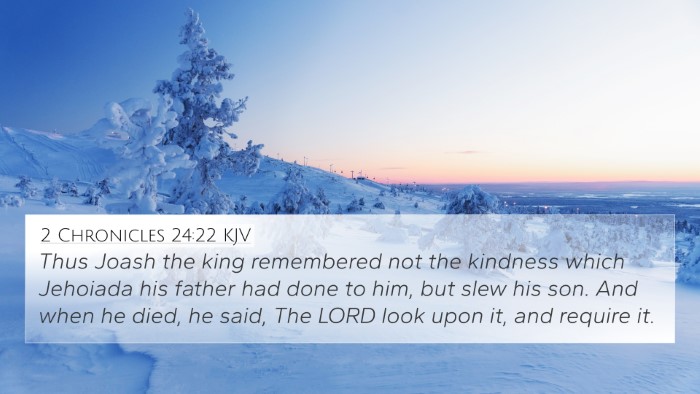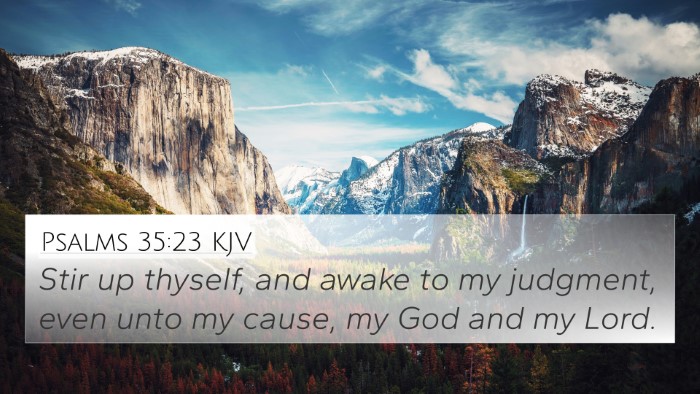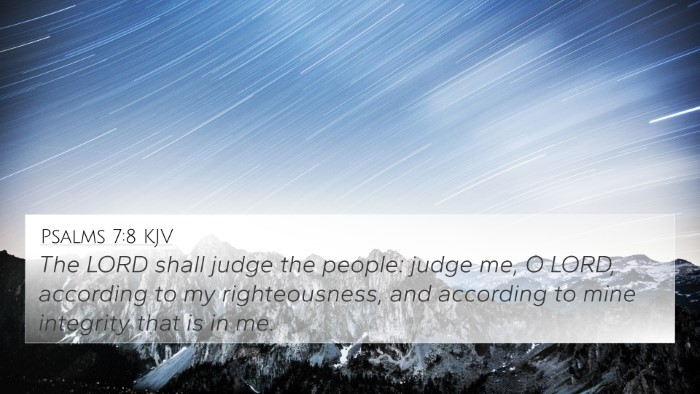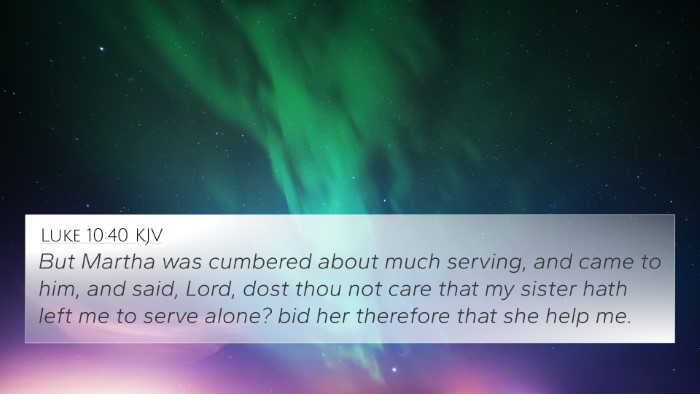Understanding Genesis 16:5
Genesis 16:5 states:
"And Sarai said unto Abram, My wrong be upon thee: I have given my maiden into thy bosom; and when she saw that she had conceived, I was despised in her eyes: the LORD judge between me and thee."
This verse captures a pivotal moment in the narrative of Abram, Sarai, and Hagar. To better understand its implications and the feelings expressed, we can analyze this through commentaries by Matthew Henry, Albert Barnes, and Adam Clarke.
Context and Summary
In Genesis 16, we find Sarai grappling with her infertility and taking matters into her own hands by giving Hagar, her Egyptian maid, to Abram as a concubine. This act stems from Sarai's deep desire for children, demonstrating the social and personal pressures she faces.
Commentary Insights
-
Matthew Henry:
Henry emphasizes Sarai's blame towards Abram, showcasing her desperation and the complexities of their relationship. He highlights how Sarai expresses her grievance, stating that her wrongs have implications on Abram, which points to a broader theme of human relations and responsibilities.
-
Albert Barnes:
Barnes notes that Sarai’s anger is initially directed at Hagar but soon turns towards Abram. The verse reflects the underlying resentment and jealousy that develops when someone else experiences favor in a situation where one feels deprived. This paints a vivid picture of human emotions in times of hardship.
-
Adam Clarke:
Clarke elaborates on the societal norms of the time, explaining that Sarai’s actions were culturally acceptable but emotionally destructive. He points to the complexity of the emotions involved, including feelings of inadequacy and rivalry that emerge from disruptions in family dynamics.
Thematic Connections
This verse opens discussions on broader themes prevalent throughout Scripture, including:
- Jealousy and Rivalry: The feelings of jealousy that Sarai experiences resonate with other biblical accounts, such as Leah and Rachel's struggles as recorded in Genesis 29-30.
- Mistakes and Consequences: The action of taking Hagar leads to dire consequences for both families, evoking themes in Proverbs 14:12 about the dangers of human wisdom.
- Divine Judgment: Sarai invokes God's judgment on the relationship between her and Abram, foreshadowing later tensions depicted in Scripture, including the relationship between Isaac and Ishmael.
Cross-References to Genesis 16:5
The following Bible verses provide thematic and narrative parallels to Genesis 16:5:
- Genesis 29:30-31: The story of Leah and Rachel's competition for Jacob’s affection.
- Genesis 21:9-10: Sarah’s jealousy towards Hagar and her son, Ishmael.
- 1 Samuel 1:4-6: Hannah's distress over her barrenness and Peninnah's provocation.
- Proverbs 14:12: The danger of choosing a path that seems right but leads to destruction.
- Galatians 4:22-31: An allegorical interpretation of the relationship between Hagar and Sarah.
- Matthew 5:37: A principle regarding oaths and judgment that reflects the need for accountability.
- James 4:1-3: The source of quarrels and conflicts, illustrating the desire for what others have.
Inter-Biblical Dialogue
Genesis 16:5 also opens discussions that connect to the broader narrative of Scripture, facilitating a deeper understanding of divine and human interactions throughout the Bible:
- Understanding Divine Will: Abram and Sarai's attempts to fulfill God’s promised blessing highlighted the trials of faith.
- Consequences of Human Actions: The ensuing conflicts stemming from Hagar's conception reflect on how personal decisions shape destinies.
- God's Faithfulness: Despite their imperfections, God's ultimate plan for Abram and Sarai ushers in significant biblical covenants.
Conclusion
Genesis 16:5 invites readers to explore the nuances of human emotions, relationships, and the pursuit of divine promises. By examining the interplay between personal choices and their broader spiritual implications, we gain insight into the relational dynamics with God and one another.
Tools for Further Study
To conduct a deeper study on this verse and its connections, consider utilizing:
- Bible concordance for locating similar themes.
- Cross-reference guides to discover related scriptures.
- Comprehensive reference resources for thematic analysis across the Bible.
